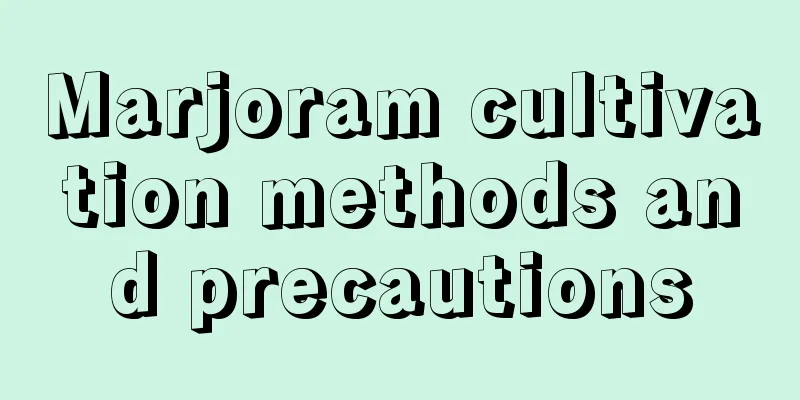What are the cultivation methods and precautions of Boston fern?

Boston fern cultivation methodBoston fern belongs to the Nephrolepis family. It usually reproduces on its own. You can dig up the seedlings and plant them in pots. When cultivating, start with the following six aspects: 1. Soil Boston fern prefers fertile and water-retaining soil. It can be planted in a mixture of leaf mold, river sand and garden soil. 2. Temperature Boston fern requires a suitable temperature environment when being maintained. The temperature needs to be kept between 18-35 degrees. If it is higher than 35 degrees or lower than 15 degrees, it will lead to poor growth. 3. Lighting Boston fern prefers a relatively warm and semi-shady growing environment. It needs sufficient sunlight under normal circumstances, but strong light should be avoided, otherwise it will affect its growth. 4. Watering When caring for the Boston fern, it needs sufficient water, the soil should be kept moist, and the leaves should be sprayed with water frequently to maintain the humidity of the air. 5. Fertilization Boston fern needs proper fertilization during maintenance, but use fertilizer with relatively low concentration, otherwise it will damage its root system. Also, avoid letting the fertilizer drip onto the leaves, just sprinkle it directly on the soil surface. 6. Pruning During the growth period of Boston fern, if you find yellow leaves or dead branches, you need to cut them off in time. This can prevent it from consuming too much nutrients and also ensure a good plant shape. Things to note when growing Boston fernWhen growing Boston ferns, you need to be careful to repot and prune them in time. It is best to do it once every one to two years, which can be done in spring and autumn every year. You need to cut off the densely growing branches and necrotic roots to promote stronger growth. |
<<: What are the cultivation methods and precautions of Phnom Penh Molan?
>>: What are the cultivation methods and precautions of Phoenix tail bamboo?
Recommend
What to do if the daffodil buds wilt
1. Reduce light If it is grown in a place with su...
The growth environment and local conditions of aquatic plants
The growth environment and conditions of aquatic ...
Is Guanyin Lotus poisonous?
1. Is it poisonous? The Alocasia odora is divided...
How to breed micro-moon
Micro-Moon Growth Conditions The soil suitable fo...
How to grow the succulent Huangli
temperature: It is the primary factor that promot...
When is the best time to water the green radish?
1. Watering time Pay attention to the time when w...
How to grow a large pumpkin
1. Land preparation Large pumpkins should be plan...
When can water spinach be sown?
Water spinach , also known as iris, is a plant wi...
Should I use a large or small pot for ivy?
Should I use a large or small pot for ivy? Whethe...
Can I water my cherry tree when it's blooming?
Cherry tree blossom watering Cherry trees need to...
How often should I water the lily of the valley?
How often should I water the lily of the valley? ...
Cultivation methods and precautions of dragon beard tree
1. Soil It prefers loose, fertile soil with good ...
The main role and function of trace element fertilizer (what are trace element fertilizers)
What is trace element fertilizer? Trace element f...
The difference between Golden Heart Chlorophytum and Golden Edge Chlorophytum
1. Leaf Difference The leaves of the golden heart...
Cultivation methods and precautions of chrysanthemum
1. Maintenance methods 1. Soil: It has certain re...









